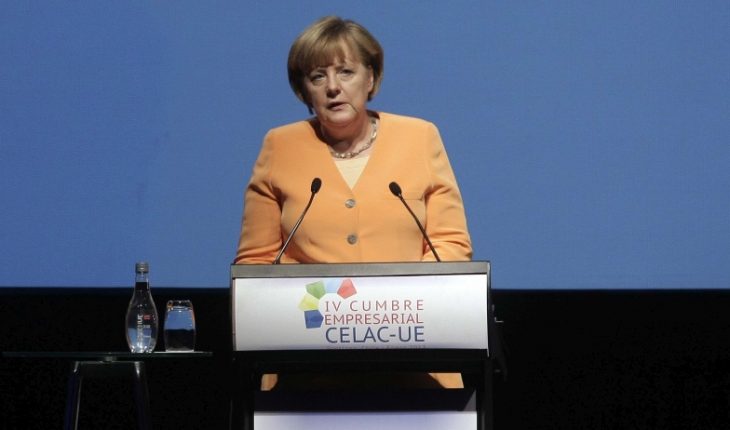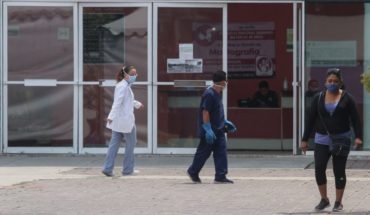Germany’s Chancellor Angela Merkel announced on Wednesday that the partial confinement in the country under the COVID-19 pandemic will run until 10 January, in light of the disease’s progress.” In principle, the rules remain as it is now,” he said after talks with prime ministers in the 16 German federated states. The Chancellor stressed that Germany is “a long way” from the values that the German Executive has set itself to consider the pandemic to be under control and has highlighted the high number of fatalities due to the disease. Thus, he pointed out that in seven days the mark of 50 new cases per 100,000 inhabitants should be reached. The partial closure of Germany has been in force since November. Last week also expanded the closure of facilities such as restaurants until shortly before Christmas. German state and federal governments assume that tougher restrictions will be needed in early January, due to increased contagions. In addition, Merkel referred to potential COVID-19 vaccines and noted that german administrations are seeking to prepare to begin implementation as soon as possible. As he recalled, the approval of the first vaccines in the EU could take place at the end of December, so it is important that preparations are made in this regard in Germany, as reported by the newspaper ‘Frankfurter Allgemeine Zeitung’. The pandemic of the new coronavirus originating in the Chinese city of Wuhan has left 17,270 new cases and 487 dead in Germany in the last 24 hours in Germany, breaking the daily death record and raising the total to more than 1.08 million people infected and more than 17,000 fatalities, according to data released Wednesday by the Robert Koch Institute (RKI) , the German government agency responsible for the control of infectious diseases. The new record for coronavirus deaths in 24 hours surpasses the record on November 27, when Germany posted 426 coVID-19 deaths in a single day. With the new data, the balance of the pandemic in German territory amounts to 1,084,743 people infected and 17,123 fatalities. In terms of recoveries, the figure is 779,500 people healed, including 20,700 who have been discharged in the last 24 hours. The German regions most affected by the pandemic are North Rhine-Westphalia (267,069 cases and 3,621 deaths), Bavaria (213,308 infected and 3,970 dead) and Baden-Wurtemberg (152,782 positive and 2,825 fatalities). In Berlin the balance sheet rises to 66,306 people infected and 594 decesses. Germany became the twelfth country in the world on November 27 with more than one million people infected, after the United States, India, Brazil, France, Russia, Spain, United Kingdom, Italy, Argentina, Colombia and Mexico.Merkel tried to encourage German citizens and appealed to his responsibility in his weekly video message broadcast on Saturday, on the grounds that each person “can do something” to curb the pandemic , using mask and respecting hygienic-sanitary safety measures.” We have come a long way,” said the head of the Berlin government. Recognizing that many things have happened since the pandemic began, Merkel recalled that at the beginning of the year we had to deal with a virus that was then virtually unknown.” Today we know a lot more about forms of contagion, the possibilities of protecting ourselves, symptoms and treatment options,” he said. In addition, he stressed that coronavirus vaccines are developing in record time and that they will not have to wait until the last moment to have them but will be available in “a likely future” thanks to researchers’ efforts.” If this pandemic has something good completely it is this: it shows that humans are able when we put our minds into it, when we act with perseverance and creativity, when we cross borders and work together,” he stressed. The chancellor said the challenge is not only for scientists but for all citizens. “No, all of us can do something. Everyone can do something,” he said, referencing measures to prevent contagion, such as the use of masks, social distance or ventilation in enclosed spaces. Merkel said that before this crisis it was unthinkable that billions of euros would be earmarked for pandemic aid. “But we do it because no one can help the fact that the pandemic has created problems for him,” he explained. The chancellor asked the German population to continue complying with the rules to prevent contagion during the Christmas period. “Because we will experience that it has been worth it. Because we’ll all be stronger together than the virus,” he concluded.
translated from Spanish: Coronavirus: Germany expands partial confinement until January 10
December 3, 2020 |





